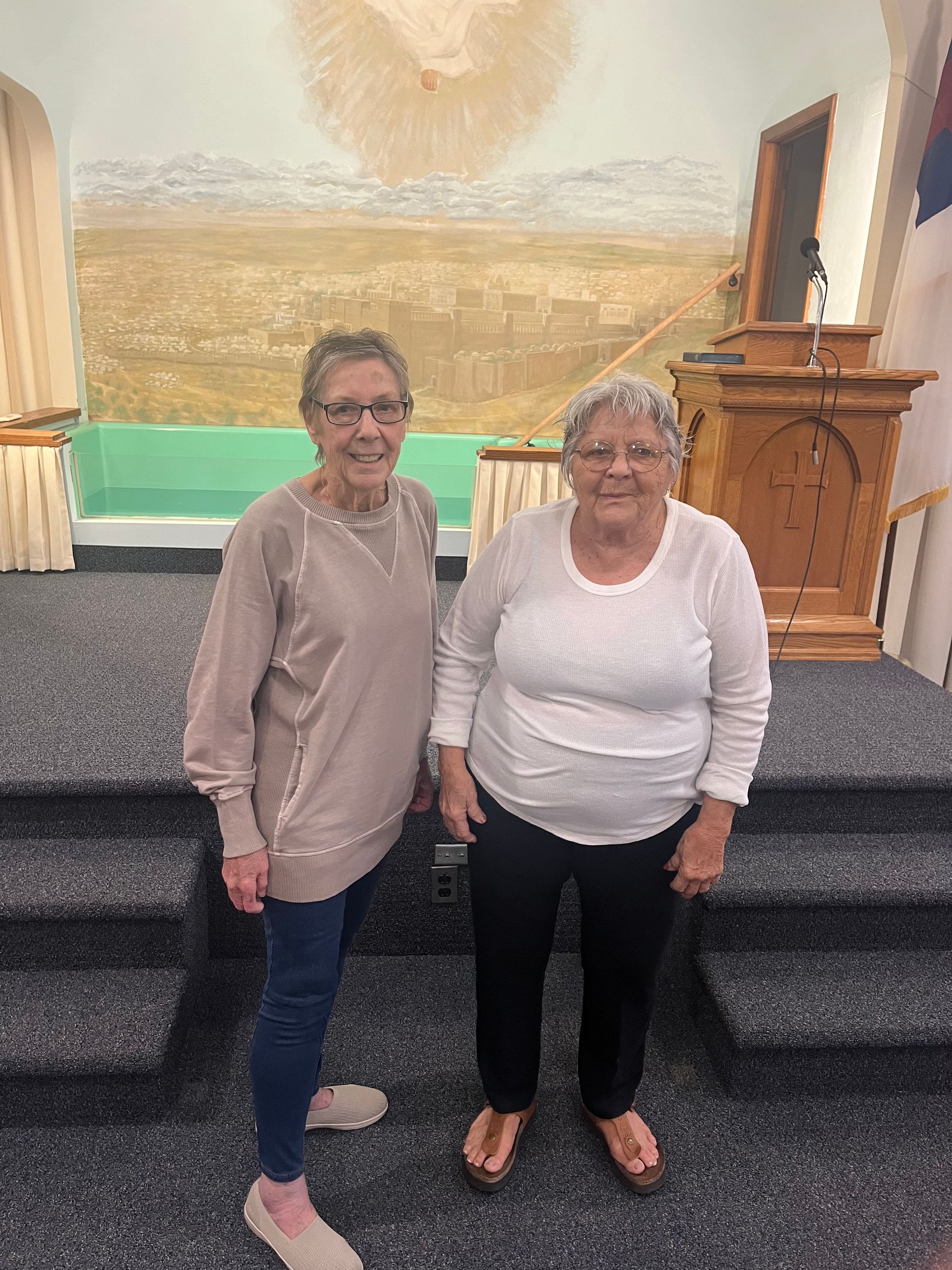Bright as Day
This post comes from Logan Imber, a recent Ashland University grad. Logan is currently serving as a missionary with YWAM in Germany. You can read Logan's writing here
Have you ever wondered what God thinks or feels when he looks at you? We live each day, many of us simply by trial and error, hoping we don’t mess anything up too badly. The phrase “fake it ‘til you make it” comes to mind, and many of us jokingly say it while we are secretly crying inside because we often are faking it – but we certainly don’t feel like we are making it. Have you ever wondered why this happens so easily, why believers and non-believers alike have this common posture of uncertainty in their daily lives? In the spirit of a theology teacher and pastor that has greatly influenced my worldview, I would like to submit a thought to you: humans are inherently very good.
For some, this may seem like an unimportant, neutral statement or you may even agree with me; for others, this may seem like blasphemy, and you may be tempted to stop reading here, but please don’t. Consider my thoughts, as I promise I didn’t come to this conclusion without prayer and consideration of Biblical texts. Even if you don’t agree with the resulting theology, hopefully, this can be a reminder of how loved you are and how powerless Satan is in the loving face of Jesus Christ. I will level with you; this (whatever-it-is) is coming from a white, female, Christian, middle-class perspective. I have had hardships of my own, I try to educate myself and listen to others who think differently than me, but I am human and so cannot escape all bias. However, this is a phenomenal concept that has changed my worldview in the past few years. It felt much like the growing pains we all experience as children; obviously painful, but once you’ve grown long enough, you have a whole new perspective. Sitting through those long nights, with your bones aching while your parent tries to soothe the pain in whatever way possible; but it’s inevitable, necessary and can’t be prevented. You wake up one day, and suddenly you’re taller, your arms are longer, and you can do things you were never able to before. A shift in perspective is much like that experience, painful but productive.
A shift in perspective is much like that experience, painful but productive.
I think as humans we will always be experiencing some “spiritual growing pains,” if you will. Some may try to stifle it while others embrace it, but it comes whether or not we acknowledge and live into it’s potential. My growing pains became astutely noticeable around my sophomore year of college, during an extremely difficult religion course about the theology of atonement, which, boiled down means the study of what happened when Jesus died on the cross.
I had already been questioning a lot of things about religion and God. During a retreat the previous year, I fell to my knees sobbing as I watched “The Passion of the Christ.” Those people probably thought I was crazy – I was a slobbering, blubbering mess – but I couldn’t help it. It’s nearly impossible to deny Jesus at the very least as a historical figure that existed, even for non-Christian philosophers and scholars. Therefore, to see any person – let alone Love incarnate – endure such torture and pain was too much for me, especially this being a man known for his love and acceptance of all who walked into his life. While many people fawn and coo and praise over this idea of atonement – as of course I always did in the past – I began to become a little angry; a lot angry. I thought, “what kind of good, loving God let’s such a wonderful, innocent being experience such undeserved pain?” For the first time in my life, the two things didn’t seem to fit together: requiring the murder of an innocent man and the loving Creator of all things. The ideas seemed contradictory, and because of that, my whole world began to fall apart – and thus began the growing pains.
I drifted from those I was closest to at the time, and my questions weren’t exactly welcome; in fact, they were seen as red flags, as a sign that I was somehow becoming less ‘holy’ or less ‘Christian’ or less of something. I’ll tell you how that makes a person feel: not good, dirty and worthless. Feeling worthless is an experience I wouldn’t wish on my worst enemy, but everyone probably has or will go through it at some point. My particular experience began with not feeling heard. I would wager that many experiences of worthlessness begin with someone not feeling like they are being listened to, but that is a subject for another time. The subject of atonement and my conclusions with that are for another time as well, but it is because of that struggle that I discovered something. I’d heard enough of what humans thought about humans, so I began to explore what God thought about humans. I wanted to know if I was doomed to this self-deprecation disguised as humility and if that was what Jesus meant when he asked his disciples to die to self. “Is there more to our story than whipping our backs for sins we aren’t even sure we committed?” I wondered.
“Is there more to our story than whipping our own backs for sins we aren’t even sure we committed?”
So, I prayed. I prayed, cried, lamented, yelled, and sometimes physically slammed my fists on the ground beneath me as I wept. In the midst of this, I heard something say,
“Go back to the beginning.” It was then I found myself reading the first few chapters of Genesis – the literal beginning of all things. There, the seed of the answer already planted within me began to break open through the dirt of my dry soul.
“So God created mankind in his own image, in the image of God he created them; male and female he created them. God blessed them, and God said to them, “Be fruitful and multiply, and fill the earth and subdue it […] God saw everything that he had made, and indeed, it was very good. And there was evening and there was morning, the sixth day.”
Gen. 1:27-28,31
Within the first chapter of Genesis, God uses the phrase “…and it was good” five times until the creation of humans when he finally says, “…it is very good.” (v. 1:31). This is the first of infinite clues to the condition in which God created humanity: God who is holy, powerful, and made of pure Light – at the epitome of creation, the climax of the symphony of all existence decided to create…us. Humans.
The first chapter of any book or work is often used to set up the rest of the story, to set the tone, scenery, introduce characters and give us the proper context within which to read the coming tale. If this is within the first chapter of arguably the most influential religious text of all time, there is a strong case to say that God thinks humans are good – very good. Not only that, but it is actually of the utmost importance to God that we are living our lives through a lens which sees we are born of greatness, of love, and of pure light. Even after the third chapter, when humans are sent out of paradise for sinning, God never reneges his statement – that humans are very good. Does he say there will be consequences for our actions? Of course, this is true, and this can be seen in our daily lives. The commandments given by God are more than an annoying parent trying to take away all the fun; in their truest form, the commandments serve the purpose of keeping us in alignment with God the same way a parent-child relationship is aligned when both are healthy individuals making the healthiest choices for each other and themselves. Therefore, sin is the breaking that parent-child bond, not because God is so disgusted with us but because of how much God cares and wants what’s best for us.
So you see, goodness is quite literally within the DNA of all humanity – despite that we are so easily tempted into the darkness, some more easily or often than others. It is impossible to deny the existence of sin and brokenness in our lives, as stated earlier; we witness the consequences of others and our actions every day. However, being surrounded by darkness is very different than being filled with it. Isn’t that the lie that Satan wishes us to buy into? That certain people are too far-gone that our souls are tinged with dark, sticky ichor that can only be cleansed from our sinful veins when we die? The Old Testament Genesis story tells we are good, and even after we mess up, the New Testament says through Jesus we are new creations and holy, living sacrifices; no longer slaves but friends of God and co-creators with him. The opposing perspective keeps us from serving people on the margins of society, reaching out to people in darkness and may even prevent us from loving ourselves in a way that gives us freedom in the Spirit that God has always intended for us. No statement or image of our irrevocable darkness comes from the Lord that created us; in fact, I see more biblical and experiential proof that he created us as beings of light.
Our mission, should we choose to accept it: look to the Light without (God), accept the light within (Holy spirit) and help others with their growing pains (like Jesus did), so that they may also be able to accept the Goodness and Love with which they were first created. In summary: Love God with all your heart, soul, mind and strength and love your neighbor as yourself (don’t forget that last bit). In a world full of darkness, remember whom you came from; remember the light that has been planted within you from the beginning of time and know that the darkness has no choice but to flee from it.
“Where can I go from Your Spirit? Or where can I flee from Your presence? If I ascend to heaven, You are there; If I make my bed in Sheol, behold, You are there. If I take the wings of the dawn, If I dwell in the remotest part of the sea, Even there Your hand will lead me, And Your right hand will lay hold of me. If I say, “Surely the darkness will overwhelm me, And the light around me will be night,” Even the darkness is not dark to You, And the night is as bright as the day. Darkness and light are alike to You.”
Psalm 139:7-12










